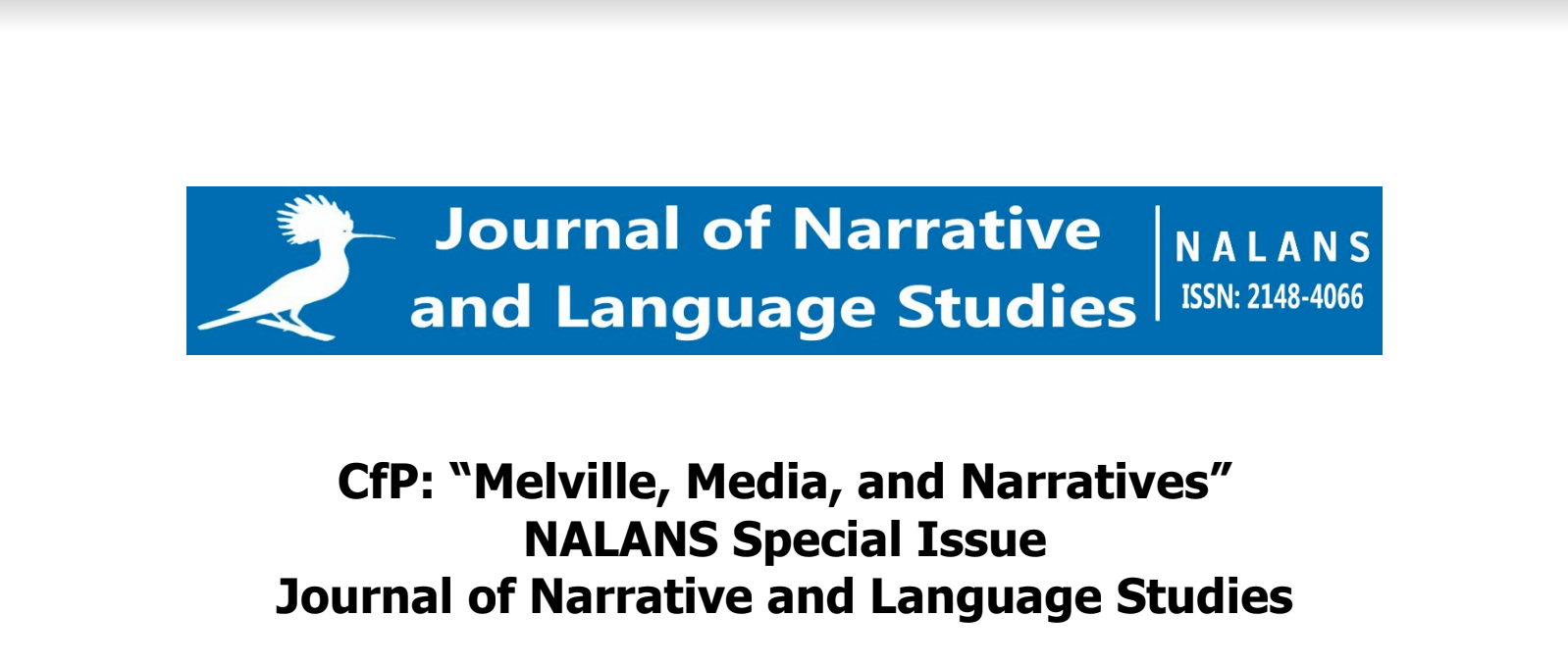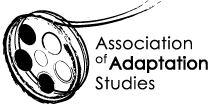
CFP: “Melville, Media, and Narratives”
NALANS Special Issue
Journal of Narrative and Language Studies
In 1983 Leland R. Phelps, a German Studies professor at Duke University, published the first survey of Melville’s critical reception outside of the United States. His book Herman Melville’s Foreign Reputation not only examines critical works on Melville but also lists editions, translations, and adaptations to assess Melville’s impact on artists and writers in other countries. Highlighting the cultural importance of Melville’s growing reputation, Phelps adds“[p]lays, opera librettos, motion pictures, and radio presentations based on works by Melville”, arguing that “[s]uch adaptations can tell us something about another people from another cultural background and they may even tell us something we had not known about the works themselves” (Phelps xx).
In addition to attracting a great deal of critical study, Melville’s multifaceted narratives from Typee (1846) to Billy-Budd, Sailor (1891/1924) have been creatively reinterpreted, reproduced, retold, reenvisioned, and revisited in narrative-based, cinematic, multimodal, intermedial realms.
This special issue on Melville’s oeuvre aims to provide a critical and reflective space for authors and scholars to share their original and insightful research. We invite papers that provide cutting-edge methodologies in the study of Melville, media, and narratives exploring, among other aspects, what John Bryant in “Textual Identity and Adaptive Revision: Editing Adaptation as a Fluid Text” calls “the critical distances between and among adaptive versions” (Bryant 49; emphasis in the original).
Theorizing and analyzing Melville’s narratives within a mediatized context of twentieth- and twenty-first-century global cultural productions, such as films, the performance arts, paintings, music clips, etc., this special issue seeks to trace creative, distorting, mimetic, as well as experimental responses to Melville’s revived narrative legacy. Thus, we welcome articles that deal with such productions and reproductions by employing the methodologies of narrative studies, language studies, and media studies.
We encourage scholars to submit papers of 6.000 to 7.000 words that investigate the following topics that are not by any means exclusive:
-
What narratological and cultural insights do we gain from translations of Melville’s works?
-
Which cultural, medial, and narrative processes have gone into the popularization of Melville’s works?
-
From which narrative and cultural perspectives (e.g., moral/philosophical, ecological, ethnic, feminist viewpoints) have Melville’s narratives been retold?
-
Which narratives, including suppressed subtexts, have (re-)surfaced in adaptations of Melville’s works?
-
For which audiences have Melville’s works been creatively reinterpreted, reproduced, retold, reenvisioned, and revisited?
-
To what extent can editions, translations, and adaptations reveal Melville’s impact on artists?
-
How do cinematic interactions (movies, films, series, advertisements and other media productions) with Melville’s works highlight the verbosity of the nineteenth-century author? (e.g., in John Huston’s adaptation of Moby-Dick).
-
How are Melville’s works explicitly reinterpreted within the digital realm (e.g., computer games, animated short films, digital-born artwork, social media)?
-
What is the creative appeal of Melville’s narratives as reinterpreted, reproduced, retold, reenvisioned, and revisited in twentieth- and twenty-first centuries (popular) media?
-
What cultural, medial, and narratological insights into Melville’s works do we gain from creative, distorting, mimetic, and experimental transformations?
We invite submissions in form of abstracts of approximately 300 words to be submitted to nalans.com no later than 30 June, 2022. After an initial review of abstracts by the editors of the special issue, selected authors will be invited to contribute full-length (6.000-7.000 words) original research articles written according to APA 7th edition and adhering to standard NALANS guidelines for authors, which can be found here:
https://www.nalans.com/index.php/nalans/about/submissions
The issue is expected to come out by March 2023.
Journal of Narrative and Language Studies, NALANS (ISSN: 2148-4066), is a peer-reviewed journal published by Karadeniz Technical University, with Editor-in-Chief Mustafa Zeki Çıraklı. The journal is indexed in SCOPUS, MLA International Bibliography, DOAJ, The Linguist List, Google Scholar, DRJY, ASOS, Academic Resource Index, Turkish Education Index, SOBIAD. All other important information on the journal can be found here:
https://www.nalans.com/index.php/nalans/index
Issue Editors
- Martina Pfeiler
- Don Dingledine
- Kyle Meikle
- Paolo Simonetti
- Mustafa Zeki Çıraklı
Proposals (abstracts) should be sent to melvillemedianarratives@gmail.com no later than 30 June, 2022.
